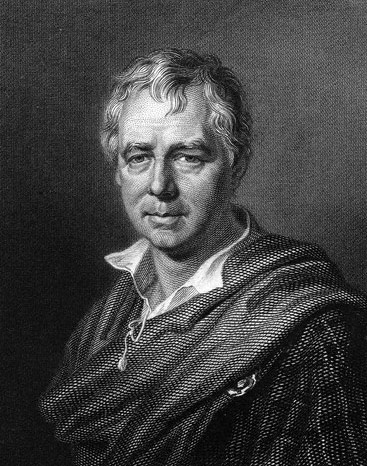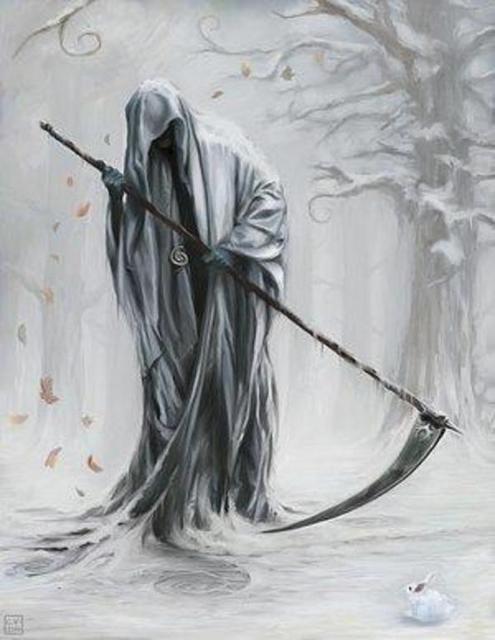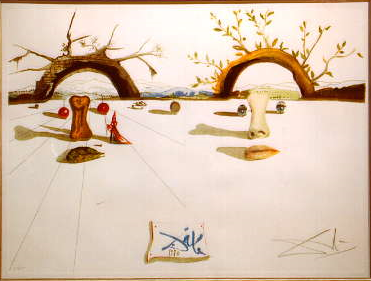

|
Taking back our lives Live your life as if truth, honor, and love were the most important things. The corporate culture would have us believe that we owe them rent for the privilege of being on the planet, that some pigs are more equal than others, that it’s important to be royalty - as opposed to noble - and that happiness is available for purchase. My message to surburbanites: rototill your front lawn, grow vegetables, put up solar panels, stay home more often, make things for yourself, and cut up your credit cards. — Jennifer Hathaway |
1 August 2009
|
|
Science and mysticism It’s only when we throw the full force of our logical minds at the problems and fail that wonder is alive, when every brain cell is engaged and still we cannot find our way through nature’s labyrinth that the Great Mystery reigns. The moment we relinquish the effort, acknowledge the uselessness of our logical brains, is the moment in which the mystery dies. — Josh Mitteldorf |
2 August 2009
|
|
In solidarity with their prisoners, Most histories understate revolt, overemphasize statesmanship, and
thus encourage impotency among citizens. When we look closely at
resistance movements, or even at isolated forms of rebellion, we
discover that class consciousness, or any other awareness of injustice,
has multiple levels. It has many ways of expression, many ways of
revealing itself-open, subtle, direct, distorted. In a system of
intimidation and control, people do not show how much they know, how
deeply they feel, until their practical sense informs them they can do
so without being destroyed... |
3 August 2009
|
|
Two fragments from a brilliant, erratic, short-lived poet To suffer woes which Hope thinks infinite; — from Prometheus Unbound, by Percy Bysshe Shelley *Ralph Vaughan Williams invoked these words to narrate his Symphonia Antartica. Listen Rise like lions after slumber —from the Masque of Anarchy, by Percy Bysshe Shelley, born this day in 1792 †Garment workers at the turn of the century chanted these words as they sought more humane conditions and a living wage. |
4 August 2009
|
|
Let there be light AT DAWN, the world rises out of darkness, slowly, sense-grain by
grain, as if from sleep. Life becomes visible once again. “When it is
dark, it seems to me as if I were dying, and I can’t think anymore,”
Claude Monet once lamented. “More light!” Goethe begged from his
deathbed. Dawn is the wellspring of more light, the origin of our first
to last days as we roll in space, over 6.684 billion of us in one global
petri dish, shot through with sunlight, in our cells, in our minds, in
our myriad metaphors of rebirth, in all the extensions to our senses
that we create to enlighten our days and navigate our nights. — Diane Ackerman (read more in Orion mag) |
5 August 2009
|
|
Communication from a flying saucer The trouble with earthlings is their early adulthood. As long as they are young, they are lovable, open-hearted, tolerant, eager to learn and to collaborate. They can even be induced to play with one another. Most adults, however, are mortal enemies. The only educational problem earth has is how to keep them young. For life, evolution, progress, and adaptation to new situations, they are useful only as long as they keep their youthful qualitities. But the funny thing is that in all the educational institutions I visited, the oject was to hasten maturity instead of delaying it. Neoteny: the
retention by adults in a species, of traits associated with juveniles. – Ashley Montagu,
Growing Young (1989) |
6 August 2009
|
|
The strangest dream “Unquestionably, war-making is an aspect of human nature which will continue as nations attempt to impose their will upon each other.” ‘Actually, this assertion is quite questionable. A recent decline in
war casualties—especially compared to historical and even prehistorical
rates—has some scholars wondering whether the era of international war
may be ending.’ It is estimated that in pre-historic tribal societies, a person’s chances of dying in a war were one in four. The Dark Ages were an improvement, and by the first half of the twentieth century, the number was down below 10%, and in the second half, less than 3%. Despite the horrors perpetrated by the Bush Administration, the rate in the 21st Century is approaching 1%. ‘the evidence of a decline in war-related deaths shows that we need not—and should not—accept war as an eternal scourge of the human condition. In fact, this fatalistic view is wrong empirically and morally... War clearly stems less from some hard-wired “instinct” than from mutable cultural and environmental conditions; much can be done, and has been done, to reduce the risks it poses...Our first step toward ending war is to believe that we can end it.’ — John Horgan, writing in Slate ‘The global proliferation of mass media...has given...the world’s population a pretty clear idea of how previous conflicts began...Once upon a time a charismatic, visionary regime with uniforms designed by Hugo Boss could whip millions of people into doing unspeakable things. But try it in the 21st Century, and people will call you Adolf Hitler.’ |
7 August 2009
|
|
Each time I catch myself doing something to get it done... God appears as ‘cosmic housekeeper’, pulling up the windowshades, opening the doors to the morning light, revealing creative possibilities within each day. When we bring a sense of the holy to even the most mundane tasks, we become able to share consciously in the perpetual renewal of Creation’s wonderful work. May we remain open to the creative sparks we feel in people we encounter, in the world around us, and within ourselves. — Rami Shapiro |
8 August 2009
|
|
The soft embrace of humility Humility is not a comeuppance, a harsh lesson learned in order to cut you down to size so that you will stop harming others. Rather, humility is surrender to the soft embrace of trust. It is acceptance of forgiveness that is already available. It is the realization that we are surrounded by caring and competent others, so that our survival and the prosperity of our extended family is assured whether or not we are able to rise to our heroic aspirations. — Josh Mitteldorf |
9 August 2009
|
|
Children offer a window into the nature of consciousness Alison Gopnik argues that although young children’s thinking may seem illogical and their play functionless, their imagination and exploration actually reflect the operation of the same powerful causal learning mechanisms that enable our uniquely human achievements in areas such as science or art...Gopnik argues that the external consciousness of young children is like a lantern rather than a spotlight (a metaphor originally proposed by John Flavell)—children distribute their attention more evenly across their environment, whereas adults focus on the things they think are important and ignore the rest.... Certain activities might give adults a sense of what young children’s conscious experience is like. Our external consciousness is perhaps most like theirs when we are traveling in an unfamiliar country or practicing a type of meditation that emphasizes clearing the mind and being present in the moment. Our internal consciousness may be most like theirs when we free-associate, or when random thoughts run through our heads just before we fall asleep, or when we meditate by focusing on observing our thoughts without controlling them. I don’t have space to do justice to her arguments here, but if these analogies seem facile or banal, trust me, they don’t in the original. — Ethan Remmel, book review in American Scientist ...our own mental states are not perceived directly and infallibly (as it seems to us) but are instead inferred using the same theory of mind that we use to infer the mental states of others. So if our theory of mind changes, our conscious experience could change with it. read Alison Gopnik’s article from Behavior and Brain Science |
10 August 2009
|
|
A reason to be joyous I notice I become anxious and watchful when I experience joy. I don’t trust it. I wonder, where does it come from? Will it last? Is it enough? Is this all the best life has to offer? I’m working on letting it be. It’s so much more comfortable to be working than to be joyous.
Listen to the Finale from Brahms trio Op 87, performed by the Moscow
Trio, |
11 August 2009
|
|
Man’s capacities have never been measured; nor are we to judge of what he can do by any precedent, so little has been tried. — H. D. Thoreau |
12 August 2009
|
|
Bass ackwards All animal bodies have the topology of a tube (torus). We pass food through a digestive track. We have a mouth at one end and an anus at the other. In a very early stage of embryonic development, every animal starts as a sphere (blastocyst) comprising less than a hundred cells. Then the sphere dimples, to create a tube. In most primitive animals, the dimple is destined to become the mouth. Biologists, who have a word for everything, call them proteostomes. The opposite of a proteostome is a deuterostome, characterized by blastocyst development in which the first dimple eventually forms the anus. You and I and all mammals, birds, reptiles and fish — we’re all deuterostomes, whereas insects and worms and lobsters and clams are all proteostomes. Most primitive animals are proteostomes. The exception is the spiny sea creatures called echinoderms: starfish and sea urchins. That’s how biologists know that you and I evolved from sea urchins. Perhaps we’d rather be related to the octopus — genius of the invertebrate world, or to social insects that are champion cooperators. But alas, our ancestors were sea urchins. We know this because you and I and the sea urchins are the only ones who build our guts from the anus forward. |
13 August 2009
|
|
Staying light “An educated person is one who has figured out that information is at best incomplete and very often false, misleading, fictitious, mendacious, or just dead wrong.” — Russell Baker, born this day in 1925, wrote 36 years of Op-Ed columns for the New York Times during the Vietnam war, a nuclear arms race, race riots, and a takeover of American politics by rabid Republicans. He had his eyes wide open, sided reliably with the underdogs, and yet he never lost his sense of humor or his appreciation for human goodness. Life is always walking up to us and saying, “Come on in, the living’s fine,” and what do we do? Back off and take its picture. |
14 August 2009
|
|
Deciding to get out of bed “If you once turn on your side after the hour at which you ought to
rise, it is all over” “The half hour between waking and rising has all my life proved
propitious to any task which was exercising my invention... It was
always when I first opened my eyes that the desired ideas thronged upon
me.” * * * * * * * * * * * * * * * * * * * * Death is dreadful, but in the first springtime of youth, to be snatched
forcibly from the banquet to which the individual has but just sat down
is peculiarly appalling” “Death - the last sleep? No, it is the final awakening” |
15 August 2009
|
|
Apropos of the subject I don’t want to think about... There are two views of what death is that spring from two ideas about the relationship between our souls and our brains. One view says ‘I am my brain. My sense of self is an illusion that sits on the electrical activity of a hundred billion neurons.’ The other view says ‘I own my brain. My consciousness has an existence of its own, apart from the physical universe. (Of this I have direct experience.) I created my body and brain as tools for engaging with other souls and the physical world.’ The first view calls itself ‘scientific’ or ‘rational’, the second, ‘mystical’, but this is a pretension, and science really has nothing to say about this question.* I don’t think clearly about death, but I offer a glimmer of insight which I have gleaned recently. We don’t know if anything remains of our consciousness after the demise of our nervous systems and our bodies. We don’t know whether death is the end of all meaning and all relation, and we don’t know whether the desperate avoidance of death is justified. But one thing we might understand is that the fear of death is part of a genetic program, with a clear evolutionary purpose. For half a billion years now, animals that were frightened by death received a shot of adrenaline with which to fight or flee from a predator, and this helped them to leave more offspring, and so the trait was passed on. There are many other such traits which we recognize as atavisms, and have successfully mastered. We are not slaves to our desire for food or for sex. We have tamed our basest instincts with regard to aggression, avoidance of pain, and penchant for inactivity. It is perhaps the more impressive that we have not banished such feelings from our experience, and yet we have brought them under rational control. Whatever we decide that death is, whatever attitude we choose to take in the face of death, we need not be paralyzed by the blinding fear that is programmed into our genes from the ancient past. — Josh Mitteldorf * Experimental protocols must be public because they must be reproducible, but my experience of self is private; thus no experiment can convince me that my sense of self is an illusion. Nevertheless, experiments that seem to demonstrate the reality of remote viewing, precognition and telepathy might be taken as suggestive of the opposite view: that part of the basis for our awareness is separate from our physical selves. |
16 August 2009
|
|
Turning math into music In the tradition of M. C. Escher (1898-1972), who turned mathematics into art, Bohuslav Martinu (1895-1959) turned math into music. Martinu used repeated rhythmic patterns, different in each instrument, to lay down a rich tapestry of sound that remains interesting to the ear after many listenings... or so it has seemed to me. I have worked with his Madrigal Sonata for violin, flute and piano for the past three months, listening hundreds of times, memorizing much of the piano part. To me, the music (which I found abstract and inaccessible at first) becomes more appealing the more I listen. Curiously, I react in the opposite way to Escher’s work: I love to look at it when it is new, but after I understand what he has done, I am not drawn to spend a long time with it. I hope readers who are more visually oriented than I will tell me about different experiences. |
17 August 2009
|
|
Biotech for life extension The Science weekly of the New York Times reports today on tests of drugs that slow aging. Actually, we’re already living twice as long as pre-industrial people lived. A lot of that is just about controlling infectious disease, but in the last 30 years, there has been great benefit for older people. The number of centenarians is exploding. There are many, many people who are healthy and active in their 70’s - a rarity just a generation ago. Take care of yourself! and you just may live to get a big health boost from technologies that are just around the corner. Excitement among researchers on aging has picked up in the last few years with the apparent convergence of two lines of inquiry: single gene changes and the diet known as caloric restriction. The article goes on to talk about translating promising results for life extension in animals into treatments for humans. Two drugs - resveratrol and rapamycin are in the news lately, but there are many others that work in animals, including metformin, deprenyl, and plain aspirin. |
18 August 2009
|
|
Shameful excuses of the gifted The misery of us that are born great! — from the Duchess of Malfi, a play by John Webster (1580-1625) ‘I will remain the constant sanctuary of your good name.’ |
19 August 2009
|
|
Remarks on change and attachment what if a much of a which of a wind what if a keen of a lean wind flays what if a dawn of a doom of a dream — e. e. cummings |
20 August 2009
Dali: Winter/Summer Patient Lovers |
|
Co-creation of reality ‘Not once in the dim past, but continuously, by
conscious mind is the miracle of the Creation wrought.’ The author of this quote was not a starry-eyed mystic, but a star-gazer of the scientific sort. Eddington (1882-1944) was a staid and conservative man, planted in an era of scientific revolution. At times, it appeared his role was to hold back the revelations of quantum mechanics and relativity that were overturning scientific expectations about stars and galaxies. When Subrahmanyan Chandrasekhar’s equations predicted that no star bigger than 1.4 times the size of the sun could indefinitely support itself against gravity and must collapse into a black hole, Eddington used his position of authority to make sure Chandra was not taken seriously. Only a generation later was Chandra spectacularly vindicated. In the above quote, what Eddington referred to is a phenomenon from the (standard) Copenhagen interpretation of quantum mechanics. A generation later, a more colorful physicist described this phenomenon in terms of a game of 20 questions in which the person answering the questions starts out without any object in mind [John Archibald] Wheeler evokes what he calls the “surprise” version of the old game of 20 questions. In the normal version of the game, person A thinks of an object—animal, vegetable or mineral—and person B tries to guess it with a series of yes-or-no questions. In surprise 20 questions, A only decides what the object is after B asks the first question. A can then keep choosing a new object, as long as it is compatible with his previous answers. In the same way, Wheeler suggests, reality is defined by the questions we put to it. — from an obituary for Wheeler published last year in Scientific American |
21 August 2009
|
|
The brain repairs itself Japanese research group led by Professor Junichi Nabekura in National Institute for Physiological Sciences found that, after cerebral stroke in one side of the mouse brain, another side of the brain rewires its neural circuits to recuperate from damaged neural function. The right side of the brain normally handles sensory stimuli from the left leg, but when the circuit for responding to the left leg was knocked out on the right side, a new one developed on the left side a few weeks later. ...the left side of the brain rearranged its neural circuits actively. After three to four weeks, the left side of the brain became to receive sensory information from the left leg that is usually received by the right side of the brain. In conclusion, the stroke in the right side of the brain activated the rearrangement of the neural circuits in the left side of the brain, and then these rearrangements helped to recuperate from stroke-induced damaged neural function.
The brain also rewires itself in response to
what we see,
what we
hear, and
what we think. Developing habits of directing our thoughts is
the most powerful thing we can do to transform ourselves and our role in
the world. |
22 August 2009
|
|
Your own physician, and your own pastor At least 50% of the benefit of Western medical treatments derives
from the ‘placebo effect’: we are cured because we expect to be cured.
But once we know this, it undermines faith that is the source of our
benefit. Must we, then, live in illusion in order to be healed? No
– we advance from broken faith to the realization that we have the power
to heal within ourselves, and that the ‘placebo effect’ is but one
doorway to that power. We culture faith in our internal ability to heal,
and liberate ourselves from dependence on the doctor. |
23 August 2009
|
|
“We have all been brought up to believe that voting is crucial in determining our destiny, that the most important act a citizen can engage in is to go to the polls and choose one of the two mediocrities who have already been chosen for us. It is a multiple choice test so narrow, so specious, that no self-respecting teacher would give it to students…Voting is easy and marginally useful, but it is a poor substitute for democracy, which requires direct action by concerned citizens.” — Howard Zinn, born this day in 1922 |
24 August 2009
|
|
The Self-Thinking Thought, on the Comments page of the NYTimes Nathan Schneider has a blog this morning with an unexceptional account of the Ontological Proof (‘By definition, God is the greatest. A God that exists is greater than a God that does not exist. Therefore God exists.’) Far more interesting is the range of comments below the article. Some excerpts: the greatest concept I know of is called the universe. It’s a big thing, we’re just beginning to define it. How did it get here? Faced with the enormity of that mystery, it’s natural to imagine what it would be like with no universe. Universe, no universe–equally profound. Learn to love the mystery... (Michael Melius) If one’s relationship with God hinges upon a certain distance and incompre-hensibility, does it not stand to reason that flashes of illumination, in which all is made clear, so to speak, threaten to efface God altogether? (Nick Kimbro) I’d rather have a love affair with a deity that is mysterious and makes demands of me than one that is nothing more than the sum total of my self and and all of its abilities. (Josh Mark) God can only be experienced and I have. I cannot prove to you that God exists. That is up to you. (Jai Khosla) What matters, as regarding the existence of God, is
the question of his nature. There is no answer to the unspeakably bad
things that happen to good people, other than to conclude that, if He
exists, it is not for our welfare.
(Morton Kaplan) Some people believe in God, others believe in the toothfairy. (Ashley) Looking for proof is different than having faith. And doubts. How difficult it is to keep faith working in your mind, in your heart. Each of us has to work so hard to believe in something. (Maria Teresa) ...to think you can wrap your finite mind around the infinite through any method is one of the great conceits of humankind. What if, gentle friends, it is all simply beyond knowing? Perhaps not beyond all knowing, just beyond ours... (Bill) |
25 August 2009
Gary Larson |
|
Skinning your knees on God Little by little, — from
I Hear God Laughing, Renderings of Hafiz by
Daniel Ladinsky |
26 August 2009
|
|
The mind is a mansion, but most of the time we are content to live in the lobby. ~ William Michaels
|
27 August 2009
|
|
It ain’t necessarily so When we read that God spoke to Moses from a burning bush, it sounds like a fairy tale. We read the Greek story of Athena appearing to Telemachos in the form of Mentor as a myth, not a history. And when Siva appears in human form, speaking to saints and peasants alike, we think of it as a morality tale, concocted to instruct. But what did the ancients think? Did contemporaries of these texts think they were myths, or did they take them literally? Julian Jaynes (1920-1997) was a man with one book and one big idea. We think of auditory hallucinations as a symptom of schizophrenia, but, says Jaynes, these are common, and were much more so before they were socialized away from us. Jaynes theorized that our sense of being the command center of our own actions is quite new to history, and that ancient people heard and obeyed voices in their heads that they attributed to God or gods or ancestors or anthropomorphized nature. ...all of which raises the question whether they were crazy or we are repressed. Are ecstatic visions and ‘speaking in tongues’ the remnants of a much more natural relationship to God that we have lost? Youtube lecture by Brian McVeigh, Part I, Part II “Who am I?” The self is the answer. It is an entity or structure of attributes given by our culture and imbedded in our language that is learned into our personal history which we infer from two sources: what other people tell us we are and what we infer from our own behavior. Many recent experiments in social psychology provide evidence for this statement. The self is not in any sense the analog ‘I’ which is contentless. The self is an object of consciousness, not consciousness itself. As such, the self is not a stable construction, but changes dramatically through history and among nations, as well as in child development, and even over the course of a day, depending on one’s excerpts and how one narratizes them. |
28 August 2009
|
|
Efficiency inching ever up A research group in photovoltaics at University of New South Wales reported yesterday a new, multi-layer solar cell with overall efficiency of 43%. 43% of the light that falls on the cell is turned into electricity, equivalent to about 500 watts per square meter. For comparison, thirty years ago the best efficiencies available were still in the single digits. At this rate, the roof of an average suburban house covered with solar cells could generate electricity for several houses in the neighborhood. The city of Sydney could get the power it needs from a solar farm in the desert 5 miles x 5 miles. As solar cells continue to get better and cheaper while oil becomes more expensive and more scarce, it is inevitable that solar cells become the more economical option. 43% article at PhysOrg Solar Panels Drop in Price from the NYTimes |
29 August 2009
|
|
Who am I? I am eternal and indestructible. I am ephemeral, constructed from moment to moment: one slip from biochemical homeostasis and I am gone forever. Cogito ergo sum. My thoughts and inner experience are the most substantial and dependable reality I know. I am nothing – at most an illusion. I am solidity, my main point of reference. I am the measure of all things, the first and most important subject of my inquiry. I am an epiphenomenon of the activity in my nervous system. I am the consciousness that created my body and my nervous system to realize my ambitions. — Josh Mitteldorf |
30 August 2009
|
|
‘Establishing lasting peace is the work of education; all politics can do is keep us out of war. — Maria Montessori, born this day in 1870 “Never help a child with a task at which he feels he can succeed.” |
31 August 2009
|





























